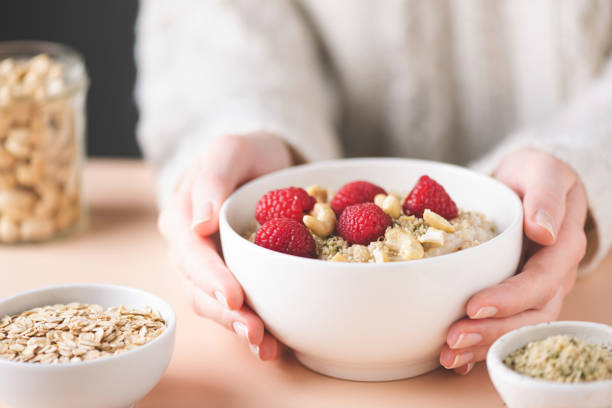As a kid, my mum would always tell me to never skip breakfast. She, like many others, believe it’s the most important meal of the day. Now that I’m in my 30s and have kids of my own, I also tell them to not skip breakfast. After all, kids should have all the nutrition they can get. But when it comes to weight loss and weight management, does eating breakfast help? Or does it cause you to gain weight instead?
Let’s try to answer these questions in this post.
1. Does Eating Breakfast Lead to Higher Calorie Consumption?
Studies show that what we drink and eat after waking up affects our energy levels, mood and cognitive function for the rest of the day. But according to the Endocrine Society, breakfast plays an even larger role in our general health. They’ve found that those who consume a big breakfast are likely to burn 2x as many calories than those who consume a big dinner. Big breakfast eaters are also found to have fewer cravings and healthier insulin levels and blood sugar levels throughout the day.
They also experience fewer cravings, particularly for sweets, and have healthier blood sugar (glucose) and insulin levels throughout the day.
In a separate study which looked at the correlation between calorie consumption and breakfast among kids in the US, it was found that those who skipped breakfast may have fewer calories overall however their snacks had high fat, salt and sugar.
2. Does Skipping Breakfast Boost Metabolism?
Your body utilizes energy for just about everything and yes that includes eating. When food is digested and then transported to various organs, it requires energy. The same can be said when storing food. But does breakfast boost metabolism? An article published on TIMES Magazine says that it helps jumpstart metabolism.
In the study, 49 people were asked to either (1) eat breakfast or, (2) fast until mid-day, for a period of 6 weeks. The group that were required to eat breakfast had to consume a minimum of 700 calories by 11AM, and about 25 of them needed to consume at least 350 calories within 2 hours from the time they woke up.
The researchers measured the metabolism and body composition of each participant before and after the study. They found that the participants with normal weight who ate breakfast had lower active fat burning genes. In other words, skipping breakfast may actually boost fat burning for healthy individuals.
However, those who were overweight had a different metabolic response. The more body these individuals had, the less their fat cells gave an insulin response.
3. Does Skipping Breakfast Make You Feel Less Hungry Throughout the Day?
You’ve probably experienced it yourself. You eat breakfast and then sometime just before lunch you start to feel hunger pangs. But if you skip your morning meal, you notice that you don’t get hungry even when it’s mid-day. The thing is, our bodies get used to a routine. When the stomach is empty it gets smaller and has a volume of about 50ml. But it can expand to as much as 2 liters. If you are always eating large amounts of food, your stomach will get bigger and you will feel hungry a lot quickly. If you eat dinner and then skip breakfast the following day, your stomach will be relatively small so you end up not feeling hungry.
4. Should You Skip Breakfast to Lose Weight?
The answer is, you may or may not. A lot of people support eating breakfast for weight loss, but there are just as many who believe it leads to weight gain. The main thing is for you to know what your body needs and stick to your calorie requirements. There is no point starving yourself in order to attain your weight loss goals if you’re just going to gain it back and more after some time. On the other hand, you should also be mindful of how much food your body really needs instead of overeating, and always try to exercise whenever you can. Get a gym membership in places like American Top Team so you’ll be more motivated to workout.
Try these high-protein breakfast recipes for a healthier meal:
